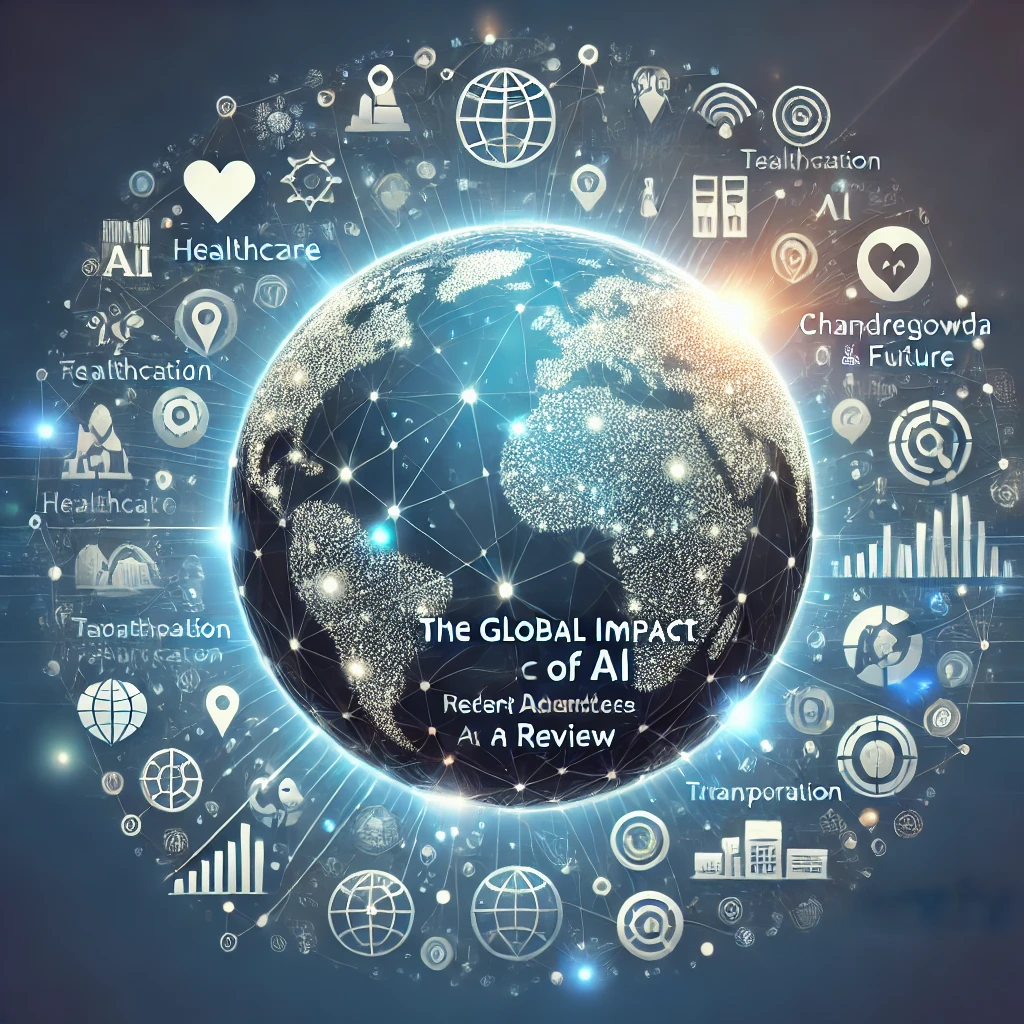
Abstract
Artificial Intelligence (AI) is transforming societies, economies, and industries worldwide. This academic review synthesizes recent research on AI’s global impact, highlighting its advancements, applications, and associated risks. It explores AI’s role in key sectors, including the economy, healthcare, and transportation, while also considering ethical and regulatory challenges. The review concludes with future directions for AI development and policy.
1. Introduction
AI has seen exponential growth in recent years, revolutionizing various domains with machine learning, neural networks, and automation. Its integration into everyday life raises important questions about its benefits, limitations, and broader implications. This paper examines AI’s impact globally, offering a balanced perspective on its advancements and challenges.
2. AI in the Global Economy
AI is reshaping industries and labor markets, driving productivity and economic growth.
- Automation and Job Market Transformation: AI-driven automation is optimizing workflows but also displacing traditional jobs, necessitating reskilling initiatives.
- AI in Finance: Algorithms enhance fraud detection, risk assessment, and trading strategies, improving financial sector efficiency.
- Economic Disparities: While developed nations harness AI’s benefits, developing economies may face digital divides due to resource constraints.
3. AI in Healthcare
AI applications in healthcare are revolutionizing diagnostics, treatment, and patient management.
- Medical Imaging and Diagnostics: AI-powered imaging tools improve accuracy in detecting diseases such as cancer and neurological disorders.
- Predictive Analytics: Machine learning models analyze patient data to predict disease outbreaks and optimize treatment plans.
- Ethical Concerns: AI in healthcare raises issues of data privacy, algorithmic biases, and accountability in decision-making.
4. AI in Transportation
AI is enhancing efficiency and safety in global transportation systems.
- Autonomous Vehicles: Self-driving technology is progressing but faces regulatory and ethical challenges.
- Traffic Management: AI-powered traffic control systems reduce congestion and improve urban mobility.
- Supply Chain Optimization: AI streamlines logistics, predictive maintenance, and fleet management, enhancing global trade.
5. Ethical and Societal Implications
The rapid adoption of AI necessitates discussions on its ethical and societal impacts.
- Bias and Fairness: AI models can reflect societal biases, leading to unfair treatment in hiring, lending, and law enforcement.
- Privacy and Surveillance: AI-driven surveillance raises concerns about personal privacy and government overreach.
- Regulatory Challenges: Policymakers must create legal frameworks to ensure ethical AI deployment while fostering innovation.
6. Future Directions and Policy Considerations
To maximize AI’s potential while mitigating risks, future research and policies should focus on:
- Responsible AI Development: Enhancing transparency, interpretability, and fairness in AI systems.
- International Collaboration: Global cooperation is needed to establish AI governance and ethical guidelines.
- Workforce Adaptation: Governments and industries must invest in education and retraining programs to support workforce transitions.
7. Conclusion
AI’s transformative potential is undeniable, offering immense benefits while posing significant challenges. By adopting responsible AI policies and fostering global collaboration, societies can navigate AI’s impact effectively. Future research should continue addressing ethical, economic, and technological implications to ensure AI serves humanity’s best interests.